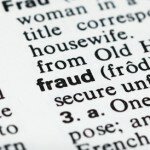Beware Disaster Related Fraud and Scams
by Robin Slade

The Boston and Texas tragedies remind us that when disaster strikes, we are not always prepared to deal with the magnitude of the chaotic wake that follows such events in our communities. Our desire to help those in need can easily outweigh our sense of logic as our emotions make us miss clues that indicate a plea for help is actually an unscrupulous scam. We may even unwittingly pass along a text message or email to friends and family that ends up helping criminals to scam others. And hoaxes are not limited to pleas for money. They are also taking the form of hacking software that allow fraudsters to gather your personal and financial information. And they use every avenue available to them, including websites, email, social media and even old-fashioned door-to-door collections, telephone calls, and mail.
We’d like to remind our readers to beware the following scams that have already presented themselves and are likely to expand and morph over the next few weeks. And remember, if you feel pressured by someone soliciting a donation, you are being scammed.
Charitable Donation Fraud – Victims’ Charities
Even registered charities may not be following through with payments to victims and their families. The Connecticut Attorney General’s Office last month announced that they are seeking information from registered organizations that have reportedly accepted donations for victims of the Newtown shootings. The Attorney General’s Consumer Protection Commissioner has undertaken this review because less than 5% of the reportedly $20 million collected appears to have been released to victims and their families.[1]
Within just four hours of the bombings in Boston, the Department of Homeland Security released a list of over a hundred charities that had registered new domain names and are now on a scam watch list. There is no certainty that these groups are all scam artists, but there is a greater likelihood of it, as scammers take advantage of the flurry of activity and desire to help that surround these disasters.
Be especially wary of copycat charities with names that are remarkably similar to but not exact replicas of known, reputable charities.[2]
The Massachusetts Attorney General issued a public warning that urges those wishing to make donations to give to established charities. Below we’ve listed the Federal Trade Commission best practices to ensure you’re dealing with a charity you can trust.
- Be alert for charities that appear to have that seem to have sprung up overnight.
- If you’re solicited for a donation, ask: if the caller is a paid fundraiser, who they work for and the percentage of your donation that will go to the charity and to the fundraiser. If you don’t get a clear answer — or if you don’t like the answer you get — consider donating to a different organization.
- Do not give out personal or financial information — including your credit card or bank account number — unless you know the charity is reputable.
- Never send cash: you can’t be sure the organization will receive your donation.
- Do not make payments to individuals.
- Do not give out your personal information to anyone soliciting for contributions.
- Check out a charity before you donate. Contact the Better Business Bureau’s Wise Giving Alliance at www.give.org.
If you become aware of any unscrupulous activity, FraudAvengers encourages you to report fraud, waste or abuse to the National Disaster Fraud Hotline. A toll-free number is staffed with operators 24 hours a day, 7 days a week.
Hacking Scams
Cyber criminals are also capitalizing on these two disasters to widely spread malware. They are sending emails and making posts with titles that relate to these events and may contain photos and information about the events themselves, in some cases, disguised as news feeds.
If you receive any unsolicited email or social media information that relate to these events:
- Think before you text.
- Do not agree to download software to view linked content.
- Do not follow a link provided in an email, text, or tweet.
- Do not open attachments.
- Delete unsolicited emails.
There are plenty of wonderful people doing legitimate work, assessing the needs of victims and our communities, and following through on donations and other assistance being provided through their websites, offices, and social media.
Do your best by taking a deep breath, doing a bit of homework, and then choosing the organization(s) you want to work through, so that you know you are really reaching those in need. And,listen to your local leadership regarding what they are asking citizens to do to help. They have the best handle on what is really needed. You are our best advocate – use your voice!




FraudAvengers said on July 21, 12 at 10:25am
[...] you believe you are a victim of a disaster scam report them to the National Disaster Fraud Hotline